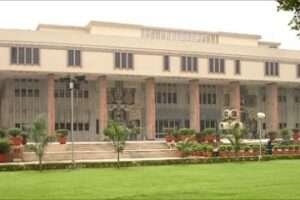Recognizing journalists as independent monitors of power, the Punjab & Haryana High Court quashes summons in a defamation case against the Indian Express Resident Editor and others
Case: Vipin Pubby v. State of Haryana and another
Coram: Justice Anoop Chitkara
Case No.: CRM-M No. 39604 of 2018 (O&M)
Court Observation: “Journalism is the fourth pillar of any Democracy. As a journalist the reporter’s sacrosanct duty is loyalty towards the citizenry. They serve as independent monitors of power, reporting information for public good and safety, addressing any problems or lacunae in the public system for its effective functioning and immediate redressal. In the fearless pursuit of their duties to uncover the truth and report such facts to the masses through media, these brave journalists do face various hurdles. e.g. pressures from influential parties, groups, or government agencies etc.”
“Thus, all courts must be more vigilant and proactive while safeguarding the interests of such courageous humans.”
“There is a conspicuous silence about it in the complaint, the statement before the court, and the reply filed to this petition. The following news extracts corroborate the unbiases and point out that the reporting had mentioned and highlighted the complainant’s response and the supporting version of the Superintendent of Police, Panchkula,”
“Journalism is civilization’s mirror, and investigative journalism it’s x-ray.”
“One of the foundational responsibilities of a journalist is to seek the truth and report it with caution while not distorting or manipulating any facts. The respective journalist cross-checked the information, ascertained it, and explicitly mentioned the complainant’s version to rule out whether the facts were true or mere concocted lies or rumors,”
“This cross-checking and accurate reporting of the complainant’s version demonstrates the journalist’s sense of responsibility and decency while prudently discharging his duties. What more can be expected from a journalist? The reporting itself proves by a preponderance of probability of due care and caution, and there is no reason why it should not be accepted as the discharging of their burden by the petitioner under S. 106 of the Indian Evidence Act, 1872,”
“the Indian Express, its reporter, and its Editors are entitled to benefit under the first and the ninth exceptions to S. 499 IPC, and the petitioner has discharged his primary burden by demonstrating the contents of the news report itself and is entitled to the benefit of the first and ninth exception of S. 499 IPC.”
Previous Posts
Keywords
Recognizing journalists as independent monitors of power




